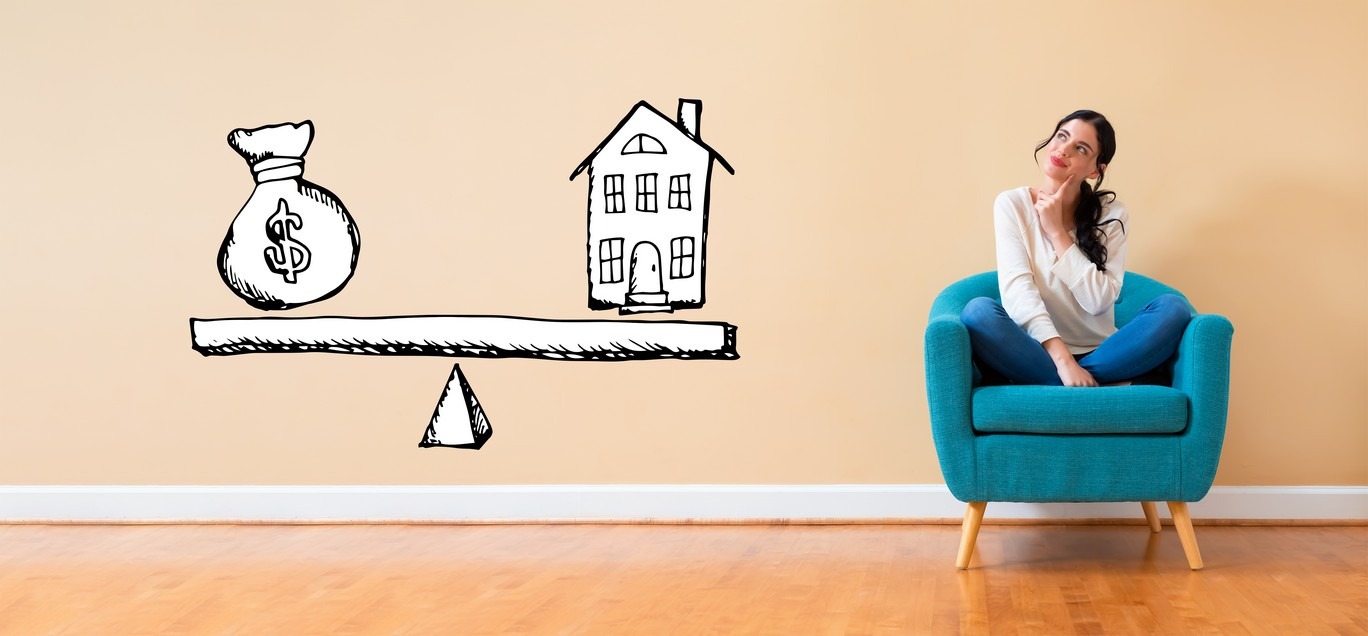Earnest Money

If you are interested in purchasing property, you may have to take out a loan. There are different types of loans available, including FHA loans, investment property loans, and even a VA home loan.
At the same time, before you can purchase the house, you may be required to place an earnest money deposit. If you have been told that you need to have earnest money for house, what do you need to know? There are several key points to keep in mind regarding earnest money real estate, and it would be our pleasure to help you.
What is earnest money?
Earnest money refers to a small amount of money that you have to pay in exchange for holding the house in your name. You should view it as a deposit that essentially places your name on the house as you decide whether you want to go through with the purchase or not.
Essentially, it works like this: When you put down your earnest money for a house, the seller is going to take the property off the market, refuse to do any other showings, and mark the property as pending. Typically, the seller will give you a window within which you need to finalize the transaction. For example, your earnest money might hold the property in escrow for approximately 30 days.
During this time, there are several steps you will complete.
- If you are financing the house, you need to find a lender to help you get your home loan.
- If you decide to get the house inspected, you need to get the house inspected. If there is anything wrong with the house, you need to work with the seller to decide what you are going to fix and what the seller is going to fix.
- You may also need to get the house appraised. If you decide to finance the house, this will be a requirement.
- You will also have to close on a certain date to keep the house off the market.
You need to make sure that both you and the seller understand the terms and conditions of your earnest money deposit. That way, there are no misunderstandings, and you understand what you can and cannot do between now and the closing date.
How big should an earnest money deposit be?
If you decide to put down an earnest money deposit, understand that this is not necessarily a requirement. However, if you want to show the seller that you are negotiating in good faith, you should offer to do so. The amount of money you put down will vary depending on the condition of the market and the house you are looking at.

In general, you should offer between one and two percent of the total purchase price of the house as earnest money if you want your offer to be taken seriously. If you are providing an all-cash offer, then you may be able to get away with a slightly smaller earnest money deposit because the seller is already confident that you can afford the house. If you believe the seller is going to have multiple offers on the table, or if the house has only recently gone on the market, then you might want to put down even more money if you want the seller to accept your offer.
If you have questions about how much money you should put down to hold the house in your name, you may want to talk to a real estate professional. The size of the house, the location, and your individual financial situation will all play a role in deciding how much money you should put down as an earnest money real estate deposit.
Are earnest money deposits refundable?
So, if you decide not to go with the house, can you get your earnest money deposit back? There are a few points you should keep in mind.
First, understand that there is a difference between earnest money and due diligence money. You need to read the fine print to understand exactly what type of money you are putting forward. Earnest money is generally refundable. This means that if the deal falls through for any reason, you should be able to get your money back (as long as you haven’t removed all the contingencies in your purchase agreement).
On the other hand, due diligence money is nonrefundable. This means that if the deal falls through, you will not get that money back. Even though it may say earnest money or due diligence money, always clarify the type of money you are putting down. That way, you will know whether it will be refundable or not.
There are a lot of reasons why you might decide not to purchase the house. They include:
Financing issues
You may find that you have a difficult time getting a home loan. A lot of factors are involved in deciding whether a lender will give you a mortgage, and you need to make sure that you reach out to a professional who can walk you through the process. That way, you make sure that you not only get a loan that can help you purchase the home but also find a loan with favorable terms.

Repairs
You may also find that you have to perform a lot of repairs on the house. When you walk through a house for the first time, you need to take note of anything that you might have to repair on the other side. At the same time, there are some issues that you may not start until after you get a home inspection. For example, you might realize that there is an expensive foundation crack that you will have to repair. Or, you may find that there are some issues with the roof that must be fixed. If you don’t want to spend the time or money to fix up the house, you may want to purchase a different property.
Life changes
There might also be some significant life changes that suddenly change your perspective. For example, if you are moving to the area for a new job, and the job decides to send you somewhere else, then you may not be looking in the right geographic location anymore. Purchasing a house is a major life decision, and if something happens in your life that causes you to change location, then you might not be purchasing the same house.
Closing timeline
It is also possible that you might run into some timeline issues regarding the closing. Typically, you need to get to close within a few weeks. Most sellers will give you 30 days to get everything in order. If that is the case, and you cannot get everything done within 30 days, then you might end up getting your earnest money back. Then, the house will go back on the market.
Appraisal issues
Finally, there might also be some appraisal issues involved. What this means is that the lender wants to make sure that you are not overpaying for the house. If you are spending more money than the house is worth, the lender might be concerned that you will not be able to recoup your money if you sell the house in a few years. As a result, the lender may ask you to come up with more money to complete the closing process. If you aren’t able to come up with the cash, the lender may refuse to finance the house, and the sale will fall through.
If you decide not to purchase the house and you put down refundable earnest money, you may not get all of it back. There may be a small cancellation fee in exchange for the time and hassle the seller will incur putting the house back on the market and finding another contract. Before you decide to put down your deposit, always take a look at the terms and conditions of the earnest money itself. That way, you are not surprised or blindsided on the other side.
Contact Griffin Funding with any questions regarding an earnest money deposit
There are a lot of important points to keep in mind if you are interested in buying a house. You need to understand exactly what is involved in your earnest money for a house, and you need to know what you are responsible for.
Before you decide how much money you want to put down, you need to think about the type of loan you will get for your house. At Griffin Funding, we have a wide variety of options available if you are interested in financing the purchase of a house. We can help you decide if an adjustable-rate mortgage or a fixed-rate mortgage is better for your needs, and we can help you review your financial situation to ensure you qualify for the best terms possible. Then, we will be with you every step of the way, making sure that you get to the closing table on time.
You should get pre-qualified for a home loan if you want to show the seller that you are serious. Therefore, reach out to us today, and request a quote! We would be honored to help you purchase the house of your dreams. We are always available to help you.
Find the best loan for you. Reach out today!
Get StartedRecent Posts
Current Mortgage Rates
What Affects Mortgage Rates? Mortgage rates fluctuate constantly based on a variety of economic variables and ...
Mortgage Refinance Limits
Your Refinancing Options Most owners have several refinancing pathways depending on their financial goals and ...
Pros and Cons of FHA Loans
What Is an FHA Loan? An FHA loan is a mortgage insured by the Federal Housing Administration, a division of th...



